Gaza ceasefire deal officially agreed
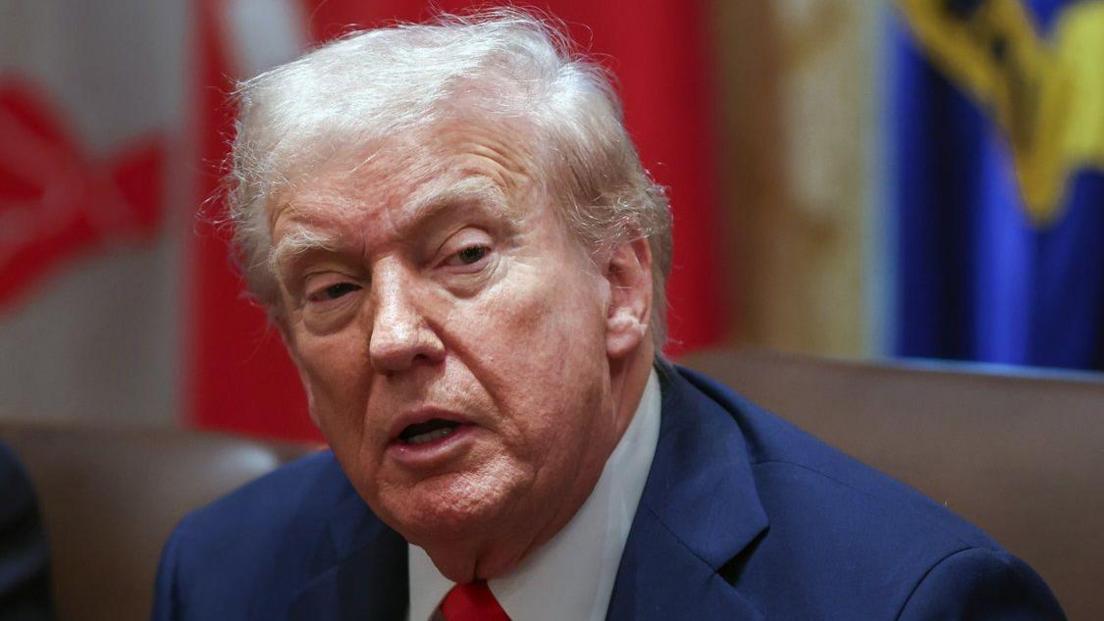
US President Donald Trump says it represents the "first phase" of his peace plan to end the war in Gaza.
- Published
A ceasefire – or pause in the fighting – in Gaza has been officially agreed by both the Israeli government and Hamas.
Israel's Prime Minister Benjamin Netanyahu and senior government ministers discussed the plan late into the night before officially signing off on the deal.
US President Donald Trump welcomed the news, saying it represents the "first phase" of his peace plan to end the war in Gaza completely.
BBC News correspondents have said that this is a significant moment during the war, which has lasted for two years, but that important details still need to be worked out before there can be a lasting end to the fighting.
There had already been ceasefire earlier this year, but it only lasted for two months.
When asked if he's confident that full peace can be reached this time, President Trump replied: "Yes, very much so."
What has been agreed?
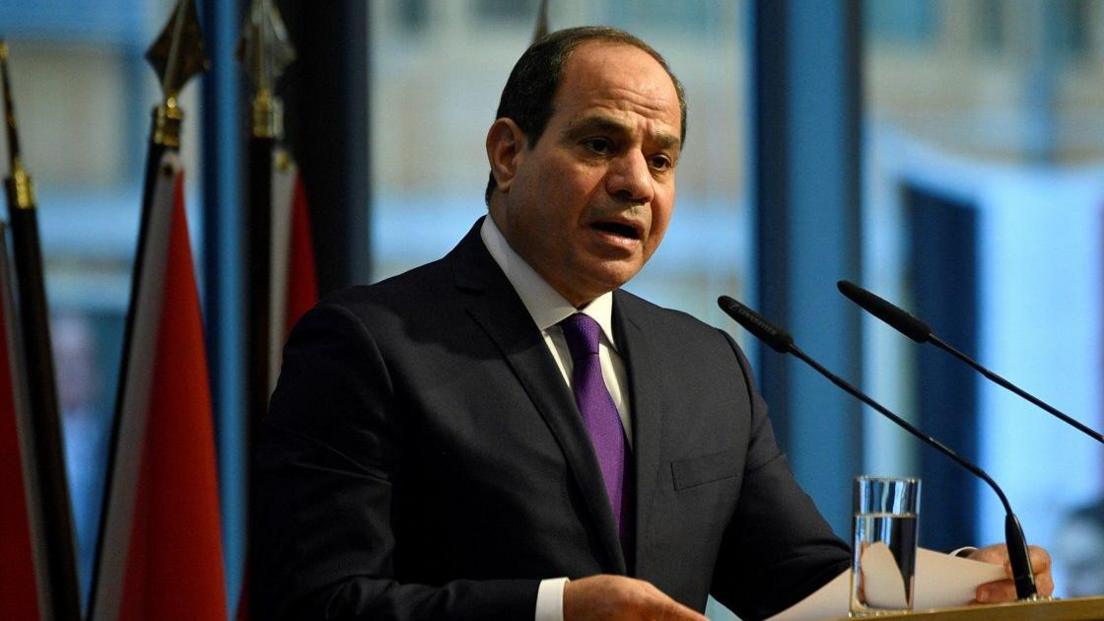
Egypt's President al-Sisi hosted the talks in his country
Representatives of Israel, Hamas, and Arab countries, who helped with working out the details of this deal, have been meeting in Egypt.
The meetings were led by the US government, aiming to bring fighting between Israel and Hamas to an end.
According to this agreement, Israeli military forces will pull back to an agreed point within Gaza, Israeli hostages and Palestinian prisoners will be released, and aid will go into Gaza.
On Thursday evening, Israel said the ceasefire would begin in Gaza once the government signed off on the deal and, following this, its armed forces would pull back.
Then there will be a 72-hour (or three-day) deadline for hostages held by Hamas in Gaza to be returned to Israel.
According to BBC correspondent Rushdi Abualouf, Israel will allow 400 aid trucks to enter Gaza daily during the first five days of the ceasefire, with the number to increase gradually in later stages.
Is the war in Gaza over?
No. What's been agreed to is a ceasefire, a pause in the fighting, with hopes that peace talks can now continue.
BBC correspondent Lyse Doucet explained that while there has been a "sigh of relief across this region," the agreement "is just the beginning, it is not the end…. It is a ceasefire, not a peace deal. The toughest of issues are still on the table."
Her fellow BBC correspondent Jeremy Bowen agreed, saying "This doesn't mean that the war is over, though this is the best chance they've had to get to that."
How have people reacted?
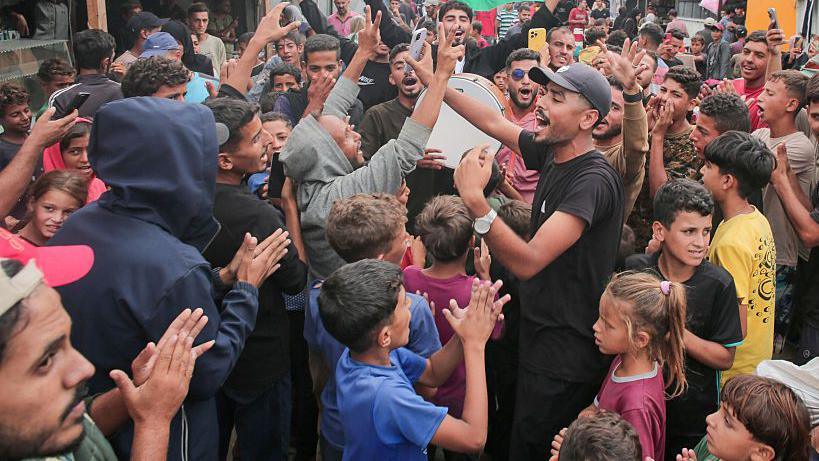
There were celebrations in Gaza at the news of a deal
There have been some celebrations in both Gaza and Israel.
Mousa, a doctor in Deir al-Balah in central Gaza, told the BBC over WhatsApp on Thursday: "I hope the coming days bring us happy news and that we and our loved ones live in safety."
"We have lost a lot during the two years of war. The Gaza Strip is destroyed.
"A difficult time still awaits us, but the important thing is we hope to be safe."
Aid coordinator Eyad Amawi said he felt a mix of happiness and sadness.
"We believe and don't believe. We have mixed feelings, between happiness and sadness, memories - everything is mixed" he said.
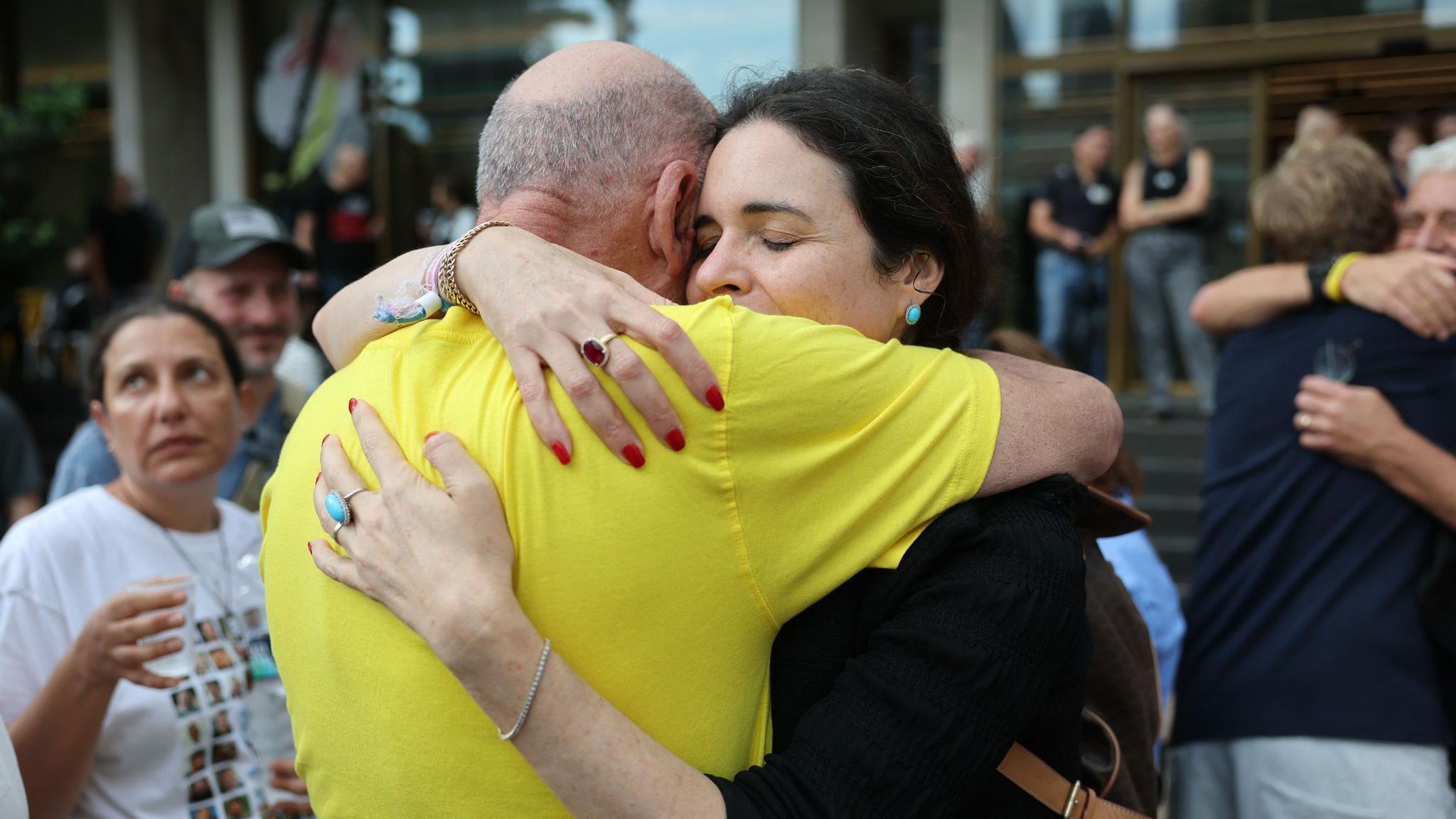
These people in Israel hugged one another after the agreement was announced
In Tel Aviv, in Israel, the mother and sister of an Israeli hostage Matan Zangauker lit fireworks at the city's Hostages Square in celebration of the news.
Emily Damari, a British-Israeli former hostage, celebrated with another freed hostage Romi Gonen, reciting prayers of gratitude, then toasting "L'chaim", meaning "to life".
She has been campaigning for the release of her friends, twins Gali and Ziv Berman.
What have others said about the deal?
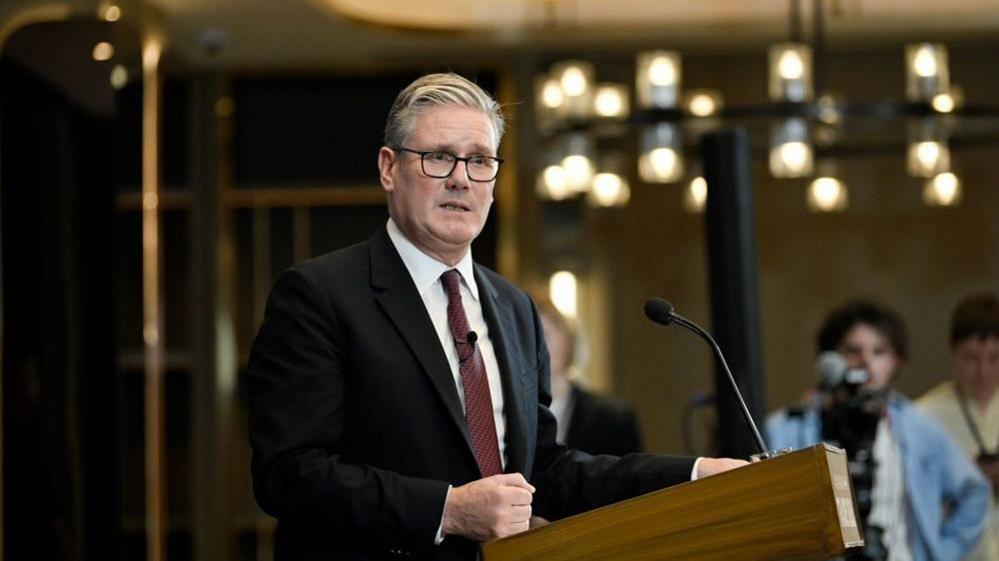
US President Donald Trump called the agreement "a momentous breakthrough in the Middle East".
He added that he thinks it could lead to "a lasting peace, hopefully an everlasting peace".
"I welcome the news that a deal has been reached on the first stage of President Trump's peace plan for Gaza," said UK Prime Minister Keir Starmer, and he called for aid to be allowed to enter Gaza.
"The world is witnessing a historic moment", said Egypt's President Abdul Fattah al-Sisi, whose country hosted the ceasefire talks.
"This agreement.. opens the door of hope for the peoples of the region" he added.
United Nations (UN) Secretary-General António Guterres welcomed the news, adding that the UN would support the deal, as well as increase its delivery of aid and its reconstruction efforts in Gaza.
Charities have also welcomed the news. James Elder, spokesperson for UN children's charity Unicef, said he's seeing an "immense amount of relief right now."
There's a lot to be done, he says, and today "is a very, very important beginning".
Inger Ashing, boss of Save the Children said: "With bombs and bullets silenced, families will be able to think to the future, of rebuilding and recovering."
